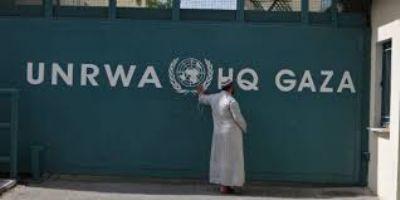"There is one way in which the Palestinian refugees are unique. The United Nations has created a special organization for Palestinian refugees that both defines them differently and cares for them separately from every other refugee population on earth. In so doing, the international community has been a full partner in helping the Palestinian refugees preserve their status and nurture their grievances.
The United Nations High Commissioner for Refugees (UNHCR) is the body that cares for all of the world's refugees except for the Palestinians. The UNHCR defines a 'refugee' as someone who is driven from 'the country of his nationality' by a well-founded fear of persecution. This definition imposes two important limitations on the category it creates. First, refugees do not transfer this status with their genes: any children born to them in exile are not considered refugees. Second, refugees lose their refugee status as soon as they are granted citizenship in a new country.
After the 1948 Arab-Israeli War, the United Nations established a new organization dedicated exclusively to the Palestinian refugees: the United Nations Relief and Works Agency (UNRWA). UNRWA defines a 'Palestine refugee' as anyone who was displaced by the 1948 War plus the 'descendants of Palestine refugee males, including legally adopted children.' In other words, Palestinian refugees pass their refugee status to their children in perpetuity.
In addition, UNRWA continues to recognize a Palestinian refugee as such even if he or she has obtained citizenship in another country. For example, there are approximately two million Palestinian refugees currently living in Jordan. They are all counted as refugees even though over ninety percent of these individuals are full Jordanian citizens.
Thus instead of dramatically shrinking from generation to generation like every other refugee population, the number of Palestinian refugees is growing exponentially.
According to UNRWA's website, 'When the Agency began operations in 1950, it was responding to the needs of about 750,000 Palestine refugees. Today, some 5 million Palestine refugees are eligible for UNRWA services.' If Palestinian refugees were defined the same way as all other refugees, the number of Palestinian refugees in 2014 would be closer to 30,000.
Our obsession with Israel is not caused by Palestinian statelessness or homelessness. There is nothing unique about Palestinian loss or suffering. Tragically, the world has done far worse to far more people to whom we pay far less attention.
What is truly unique about the Palestinians is not what they have suffered, but how they have responded to their suffering. The Palestinians are the only refugee population from the World War II era to remain frozen in time. They alone remain in camps. They alone have nurtured a culture in which the keys to houses that no longer exist are often more cherished than the lives of their children..."
May 20, 2017
Book Excerpt: The United Nations and the Palestinians

Date
May 20, 2017
Title
The United Nations and the Palestinians, The Washington Free Beacon
Author(s)
David Brog
